
The Majestic Cape Peninsula: A Coastal Haven
The Cape Peninsula, located in the southwestern tip of South Africa, is a breathtaking region brimming with natural beauty and rich history. This scenic area stretches from the bustling city of Cape Town to the iconic Cape Point, offering a remarkable variety of landscapes, from rugged cliffs and pristine beaches to lush forests and tranquil bays. Visitors can marvel at the striking contrast between the Atlantic and Indian Oceans at the southernmost tip of the peninsula, where the waters are known for their vibrant marine life. The Cape Peninsula is home to several notable attractions, including the famous Table Mountain National Park, where adventure seekers can hike, bike, or take a cable car to the summit for panoramic views of the surrounding area. Boulders Beach is another must-visit spot, renowned for its colony of endangered African penguins that waddle charmingly along the sandy shores. The scenic Chapman’s Peak Drive offers one of the most picturesque coastal drives in the world, winding through rocky cliffs and offering stunning ocean vistas. In addition to its natural wonders, the Cape Peninsula boasts a rich cultural heritage. The quaint fishing villages of Hout Bay and Simon's Town provide a glimpse into the region's maritime history, complete with colorful boats, fresh seafood, and local markets. The area is also dotted with historic landmarks, such as the Cape of Good Hope and the shipwreck-strewn shores that tell tales of early explorers and seafarers. Whether you are an avid nature lover, a history buff, or simply looking for a serene escape, the Cape Peninsula offers an unforgettable experience.
Local tips in Cape Peninsula
- Visit early in the morning to avoid crowds, especially at popular spots like Boulders Beach and Cape Point.
- Wear comfortable shoes and bring a jacket; the weather can change quickly, and some areas are best explored on foot.
- Try local seafood at Hout Bay and Simon's Town for a taste of the region's culinary delights.
- Take a guided tour to learn more about the unique flora, fauna, and history of the Cape Peninsula.
- Don't miss the sunset at Chapman's Peak Drive for a stunning end to your day's adventure.
The Majestic Cape Peninsula: A Coastal Haven
The Cape Peninsula, located in the southwestern tip of South Africa, is a breathtaking region brimming with natural beauty and rich history. This scenic area stretches from the bustling city of Cape Town to the iconic Cape Point, offering a remarkable variety of landscapes, from rugged cliffs and pristine beaches to lush forests and tranquil bays. Visitors can marvel at the striking contrast between the Atlantic and Indian Oceans at the southernmost tip of the peninsula, where the waters are known for their vibrant marine life. The Cape Peninsula is home to several notable attractions, including the famous Table Mountain National Park, where adventure seekers can hike, bike, or take a cable car to the summit for panoramic views of the surrounding area. Boulders Beach is another must-visit spot, renowned for its colony of endangered African penguins that waddle charmingly along the sandy shores. The scenic Chapman’s Peak Drive offers one of the most picturesque coastal drives in the world, winding through rocky cliffs and offering stunning ocean vistas. In addition to its natural wonders, the Cape Peninsula boasts a rich cultural heritage. The quaint fishing villages of Hout Bay and Simon's Town provide a glimpse into the region's maritime history, complete with colorful boats, fresh seafood, and local markets. The area is also dotted with historic landmarks, such as the Cape of Good Hope and the shipwreck-strewn shores that tell tales of early explorers and seafarers. Whether you are an avid nature lover, a history buff, or simply looking for a serene escape, the Cape Peninsula offers an unforgettable experience.
When is the best time to go to Cape Peninsula?
Iconic landmarks you can’t miss
V&A Waterfront
Discover the V&A Waterfront: A cultural and shopping paradise in Cape Town, where stunning views meet vibrant experiences.
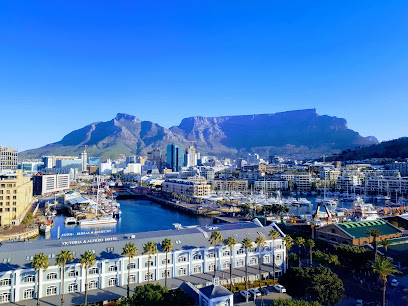
Boulders Beach
Discover the enchanting Boulders Beach in Cape Town, where you can relax on beautiful sands and meet the charming African penguin colony.
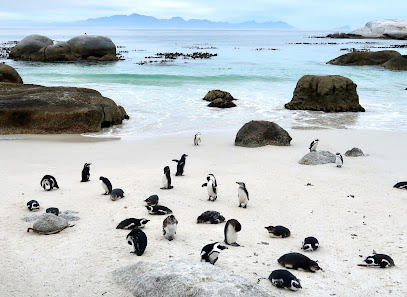
The Cape Wheel
Experience stunning views of Cape Town from The Cape Wheel, an iconic Ferris wheel located at the vibrant Victoria & Alfred Waterfront.
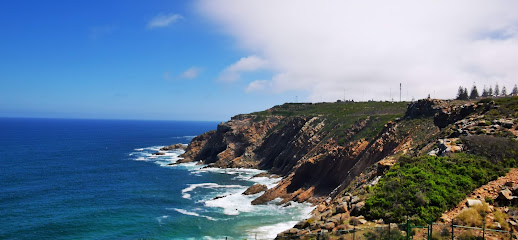
Cape Point Nature Reserve
Discover Cape Point Nature Reserve, a breathtaking national park with stunning landscapes, diverse wildlife, and exhilarating hiking trails in South Africa.
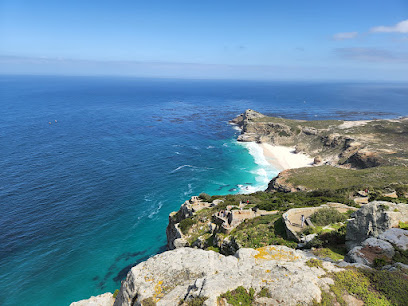
Bay Harbour Market
Experience the vibrant culture of Cape Town at Bay Harbour Market, a hub for local food, crafts, and live entertainment in stunning Hout Bay.
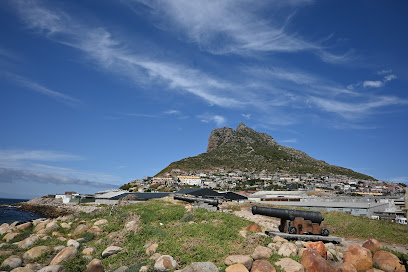
World of Birds Wildlife Sanctuary & Monkey Park
Explore the World of Birds Wildlife Sanctuary & Monkey Park in Hout Bay, a captivating haven for bird lovers and wildlife enthusiasts in Cape Town.
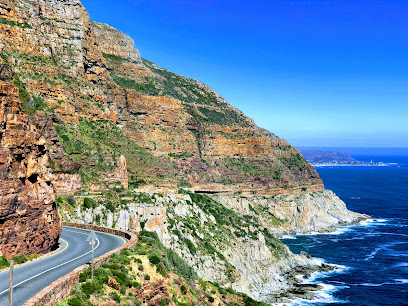
The Nelson Mandela Gateway To Robben Island
Explore the Nelson Mandela Gateway to Robben Island, a poignant landmark reflecting South Africa's struggle for freedom and justice.
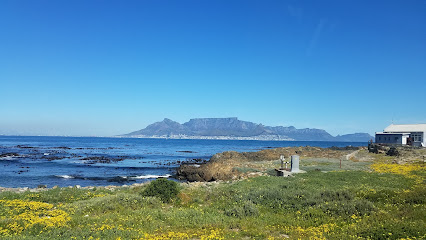
Rhodes Memorial
Discover the historical and natural beauty of Rhodes Memorial, a must-visit monument at the foot of Devil's Peak in Cape Town.
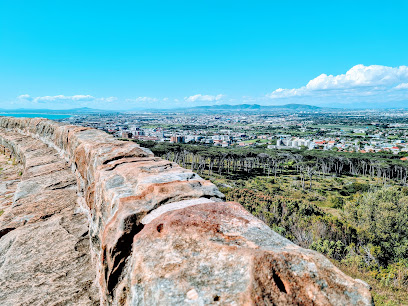
Cape Point
Discover the stunning landscapes and rich biodiversity at Cape Point, a natural wonder at the southern tip of Africa.
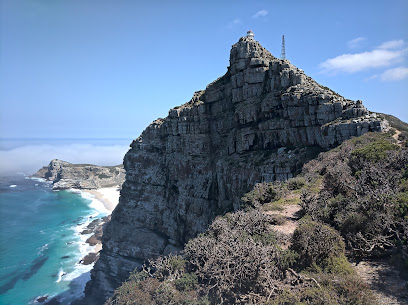
Flying Dutchman Funicular
Discover breathtaking views and rich history aboard the Flying Dutchman Funicular at Cape Point, a scenic gem in Table Mountain National Park.
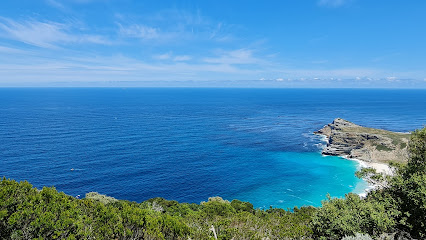
Iziko Slave Lodge
Explore the Iziko Slave Lodge in Cape Town, a powerful museum shedding light on South Africa's complex history of slavery and resilience.
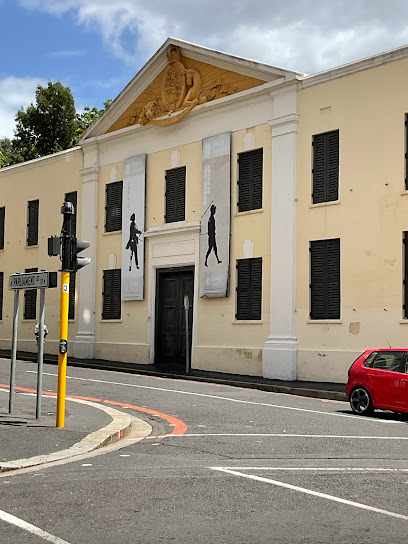
Rondevlei Nature Reserve
Explore the lush landscapes and rich biodiversity of Rondevlei Nature Reserve, a serene escape in the heart of Cape Town's natural beauty.
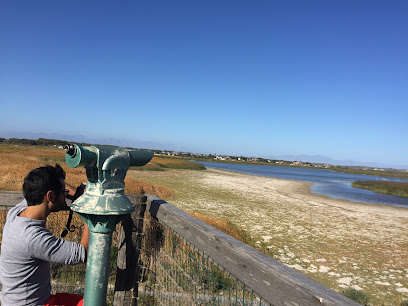
Cape Town Diamond Museum
Explore the captivating world of diamonds at the Cape Town Diamond Museum, where history, beauty, and culture intertwine in an unforgettable experience.
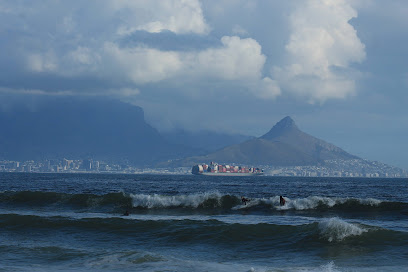
Gugulethu 7 Memorial
Explore the Gugulethu 7 Memorial in Cape Town, a powerful tribute to the struggle against apartheid, symbolizing resilience and hope in South Africa's history.
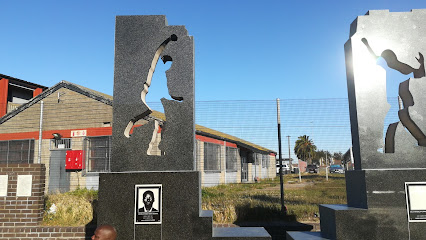
Foxy Beach
Explore Foxy Beach, a stunning nature preserve in Simon's Town, home to playful African penguins and breathtaking coastal views.
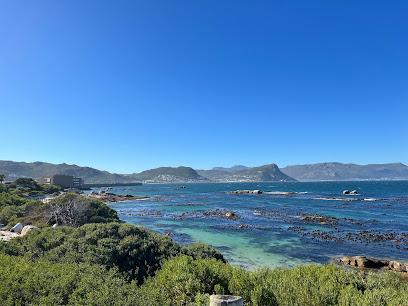
Unmissable attractions to see
City Sightseeing Cape Town Visitor Center
Discover Cape Town's beauty and culture with City Sightseeing tours, your gateway to unforgettable experiences at the V&A Waterfront.
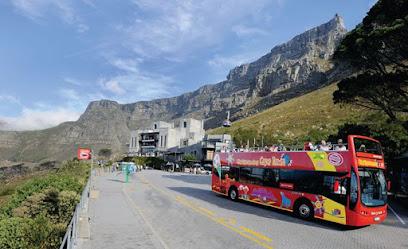
The Nelson Mandela Gateway To Robben Island
Discover the profound history of Nelson Mandela and Robben Island at the vibrant gateway located in Cape Town's V&A Waterfront.
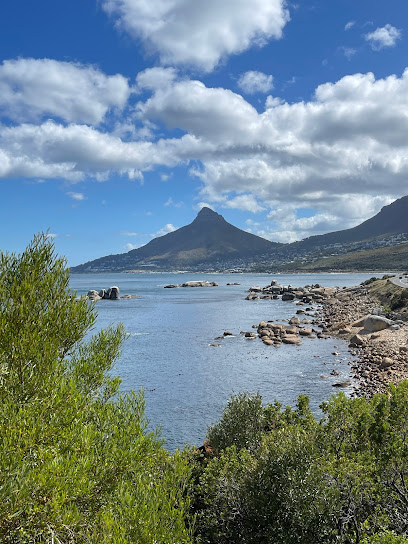
Bakoven Beach
Experience the tranquil beauty of Bakoven Beach in Cape Town, where golden sands meet stunning mountain views in a serene atmosphere perfect for relaxation.
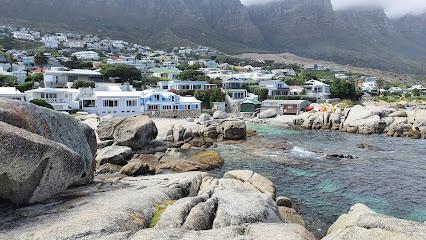
Cape Diamonds
Explore Cape Diamonds in Green Point, Cape Town, for exquisite jewelry and a unique shopping experience that reflects true craftsmanship and luxury.
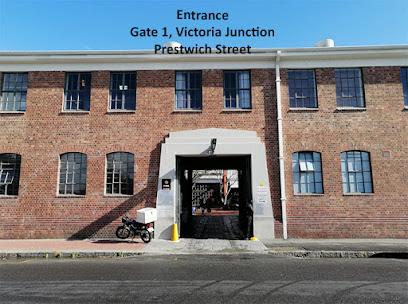
The Cape Town Local
Discover the best of Cape Town with The Cape Town Local, your go-to tour operator for unforgettable experiences and local insights.
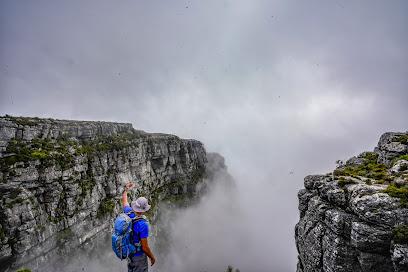
Elephant's Eye Cave
Explore the scenic trails leading to Elephant's Eye Cave in Cape Town, where adventure meets breathtaking landscapes and rich local history.
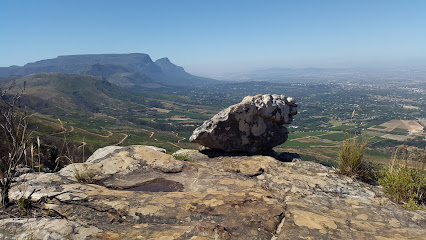
Mzansi Restaurant - African Restaurant Cape Town, South African Township Food
Discover the authentic flavors of South African township cuisine at Mzansi Restaurant in Langa, Cape Town, and immerse yourself in local culture.
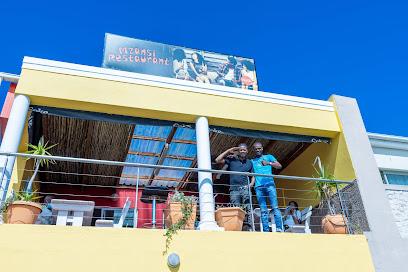
Dias Beach
Experience the breathtaking beauty of Dias Beach, a pristine public beach nestled in Cape of Good Hope, ideal for relaxation and adventure.
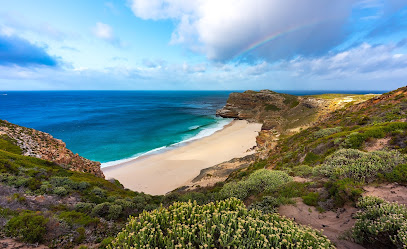
Silver Spoon Indian Cuisine
Discover authentic Indian flavors in the heart of Tokai, Cape Town, at Silver Spoon Indian Cuisine, a culinary haven for food lovers.
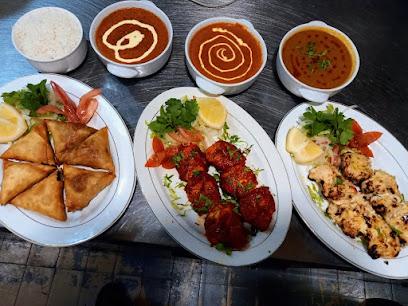
Longridge Wine Estate
Experience the beauty of Longridge Wine Estate, where exquisite wines and stunning landscapes create unforgettable memories in the Cape Winelands.

Zandvlei Estuary Nature Reserve
Explore the serene Zandvlei Estuary Nature Reserve, a hidden gem in Cape Town offering stunning biodiversity and outdoor adventures.
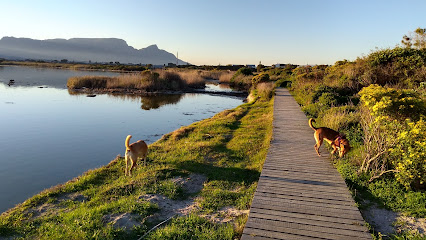
Cape Point National Park Toll Gate
Experience breathtaking views and diverse wildlife at Cape Point National Park, a must-visit destination in Cape Town's stunning landscapes.
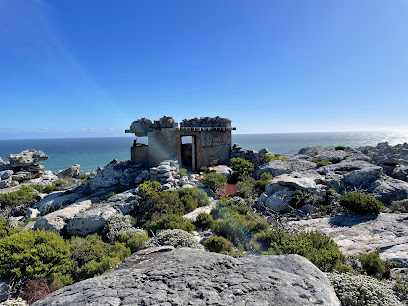
Elsie's Peak
Explore the breathtaking vistas of Elsie's Peak, a must-visit hiking destination in Cape Town, perfect for nature lovers and adventure seekers.
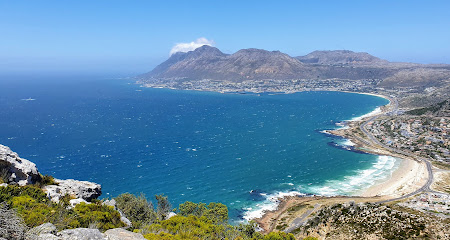
Admiral's Waterfall
Experience the enchanting beauty of Admiral's Waterfall in Cape Town, a nature lover's paradise with stunning views and serene surroundings.
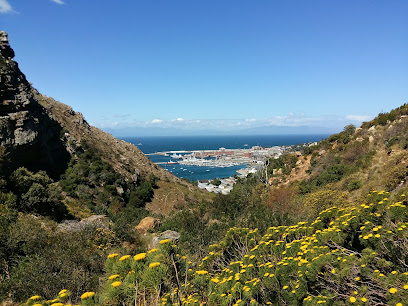
Boomslang Cave Entrance
Discover the breathtaking natural beauty and thrilling hiking experience at Boomslang Cave Entrance in Clovelly, Cape Town.
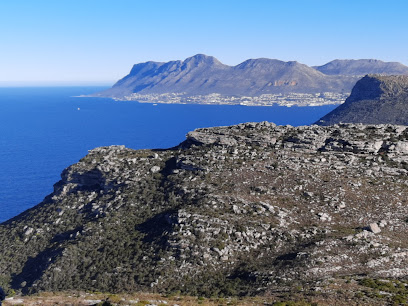
Essential places to dine
Harbour House Kalk Bay
Experience exquisite seafood dining with stunning ocean views at Harbour House Kalk Bay - a culinary gem on South Africa's coast.
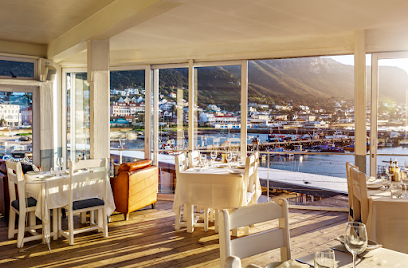
The Bungalow
Discover culinary excellence at The Bungalow in Clifton: where stunning ocean views meet delectable seafood and vibrant cocktails.
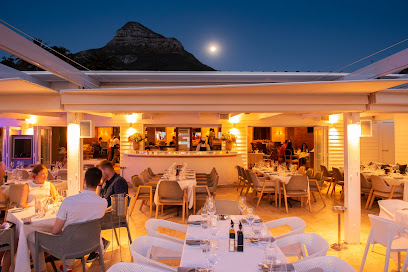
On the Rocks Restaurant
Experience breathtaking ocean views and delicious local cuisine at On the Rocks Restaurant in Bloubergstrand.
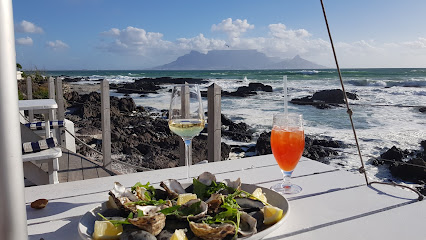
GOLD Restaurant
Discover authentic African cuisine at GOLD Restaurant in Cape Town, where delicious food meets vibrant culture through live performances.
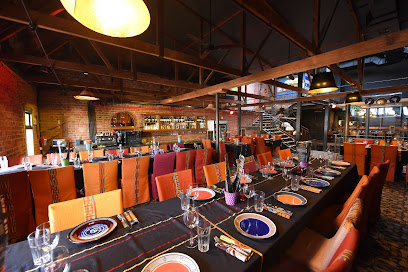
Dunes Beach Restaurant & Bar
Experience the perfect blend of stunning views and delicious cuisine at Dunes Beach Restaurant & Bar in Cape Town.
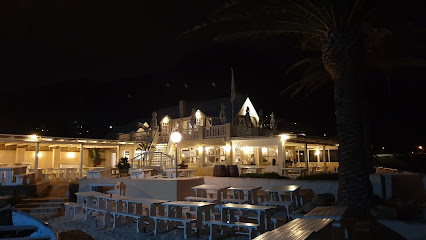
Pigalle Restaurant
Experience Cape Town's vibrant culinary scene at Pigalle Restaurant - where exquisite seafood meets lively entertainment.
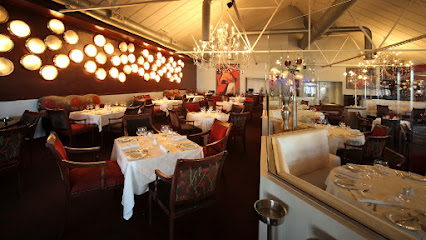
La Colombe Restaurant
Discover La Colombe: A fine dining treasure in Cape Town offering modern French cuisine amidst stunning vineyard views.
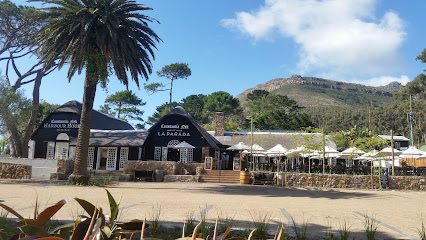
Karibu Restaurant
Discover authentic South African flavors at Karibu Restaurant in Cape Town's vibrant V&A Waterfront—where every meal tells a story.
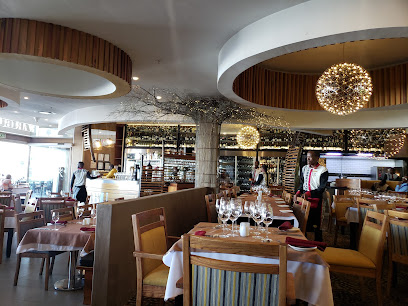
Cape Point Vineyards Restaurant
Experience breathtaking ocean views and exquisite cuisine at Cape Point Vineyards Restaurant - a true gem in Cape Town's culinary scene.
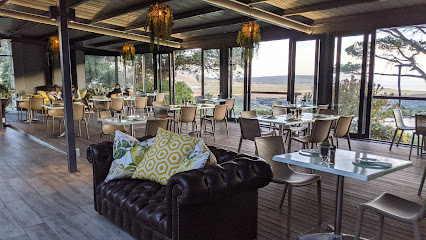
Utopia Cape Town
Discover Utopia Cape Town: A fine dining experience with stunning views and exceptional seafood in the heart of De Waterkant.
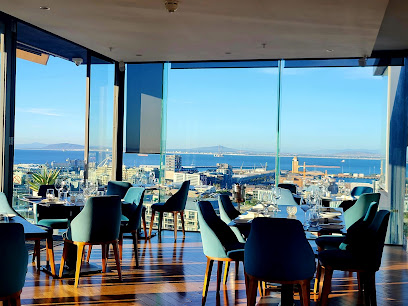
The Pot Luck Club
Experience innovative tapas and stunning views at The Pot Luck Club in Cape Town's vibrant Old Biscuit Mill.
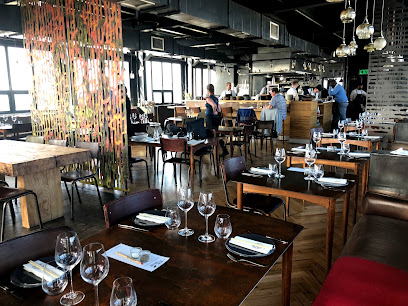
Belly of the beast
Discover exceptional dining at Belly of the Beast in Cape Town – where seasonal ingredients meet innovative culinary artistry.
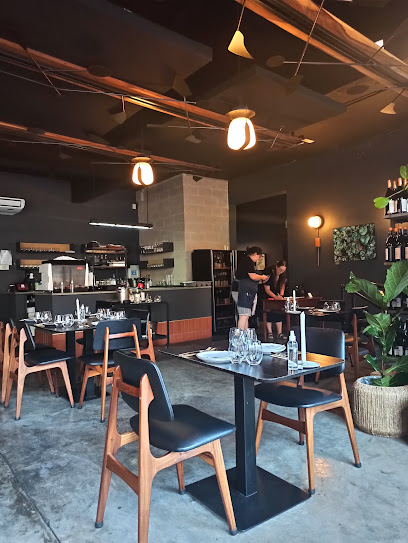
Fyn Restaurant
Discover Fyn Restaurant in Cape Town: Where South African Ingredients Meet Japanese Culinary Mastery for an Unforgettable Dining Experience.
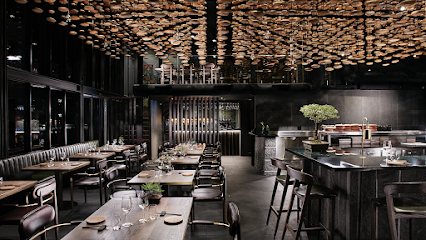
Fran's Place
Experience exceptional local cuisine at Fran's Place in Simon's Town - where flavor meets stunning coastal views.
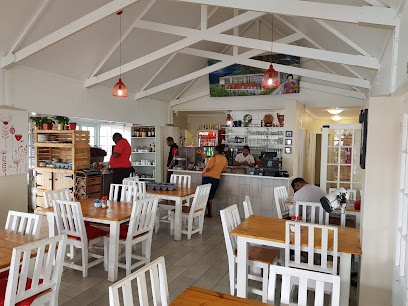
Black Sheep Restaurant
Experience the vibrant flavors of South Africa at Black Sheep Restaurant - an eclectic dining destination in Cape Town's Gardens district.
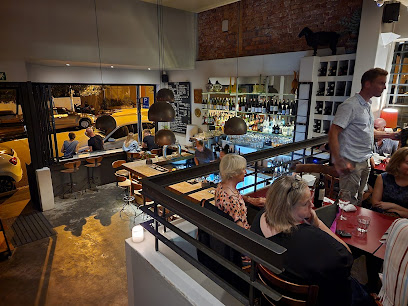
Markets, malls and hidden boutiques
Harbour Bay Mall
Discover unique shops, delicious dining, and stunning views at Harbour Bay Mall in Simon's Town, your ultimate shopping destination.
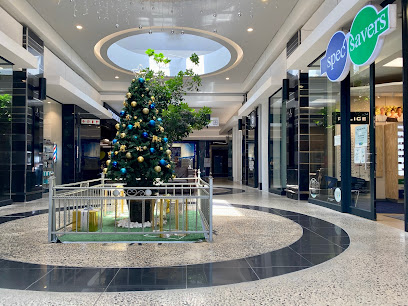
AP Jones
Discover unique gifts, fashionable clothing, and stylish swimwear at AP Jones in Fish Hoek, Cape Town - a perfect shopping destination for tourists.
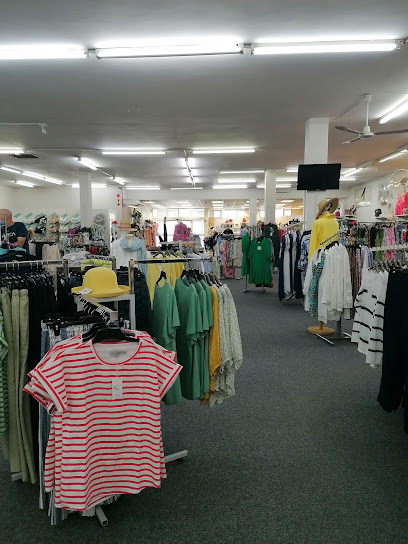
Longbeach Craft Market
Discover the Longbeach Craft Market, where local artisans showcase unique handcrafted gifts and treasures, perfect for every tourist's collection.
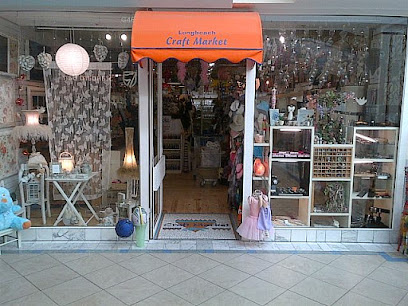
Craft Market
Discover unique handmade crafts and immerse yourself in the vibrant culture at Cape Town's Craft Market in the scenic Cape Peninsula.
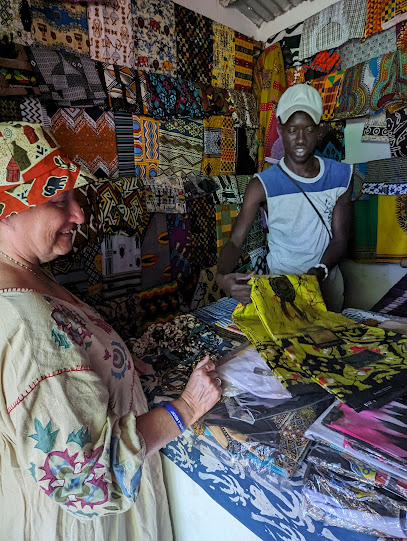
Tres Nagual
Explore Tres Nagual: A treasure trove of local crafts, herbal products, and unique gifts in the heart of Cape Point, Cape Town.
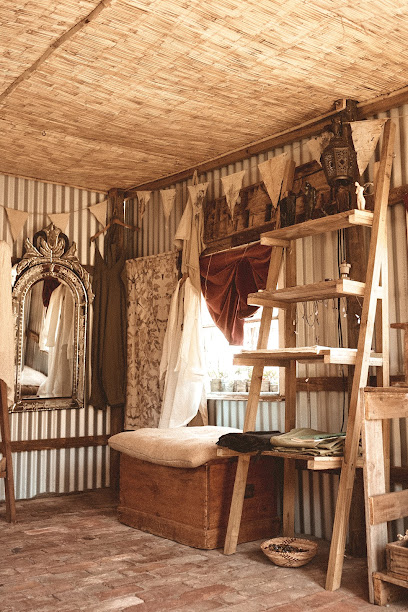
The Aloe Shop
Discover natural beauty at The Aloe Shop in Simon's Town, where aloe vera meets skincare for a rejuvenating experience.
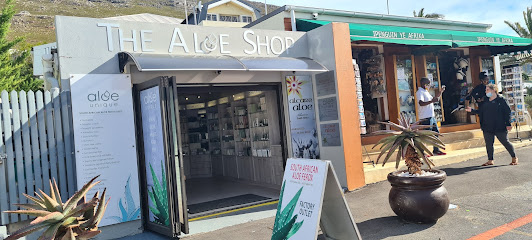
Hunter & Collector
Explore Hunter & Collector, an antique store in Simon's Town offering a captivating collection of vintage treasures and historical artifacts.
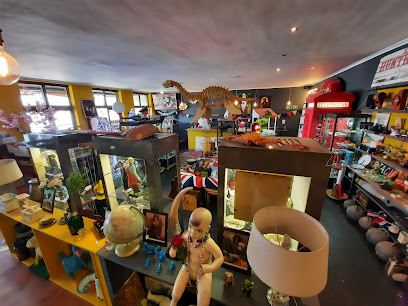
3 stitches crafts
Explore the creative world of 3 Stitches Crafts in Glencairn, Cape Town, where unique handmade toys and crafts await you.
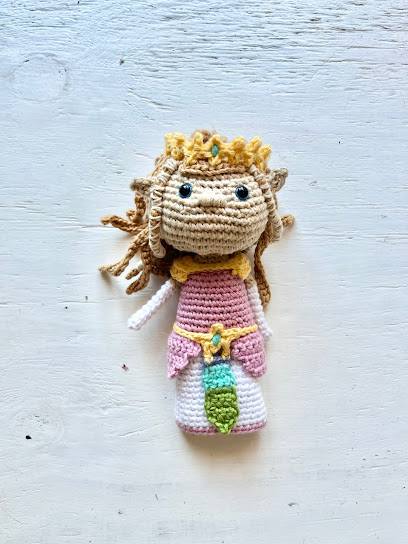
The Crazy Store
Discover an eclectic range of gifts and unique finds at The Crazy Store in Noordhoek, a delightful shopping destination for tourists and locals alike.
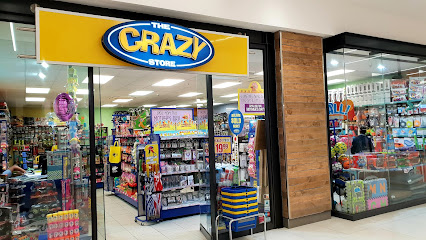
Enkosi Afrika
Discover the vibrant culture of Africa at Enkosi Afrika, Simon's Town's premier destination for unique gifts and handcrafted leather goods.
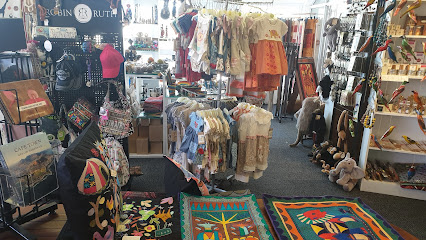
Pure Yin Studio
Explore Pure Yin Studio in Simon's Town, a boutique offering unique local crafts and a tranquil shopping experience in the heart of Cape Town.
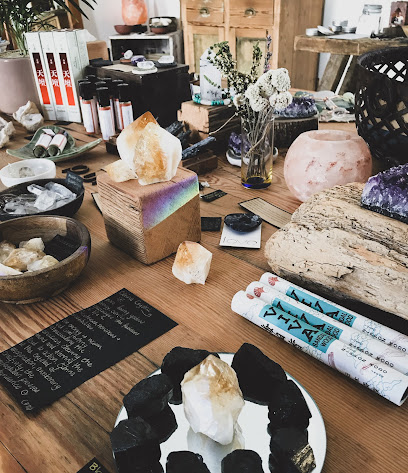
Maximalist
Explore Maximalist in Simon's Town for a unique collection of antiques and vintage clothing, perfect for history buffs and style enthusiasts alike.

African Art & Gemstones
Explore authentic African crafts and exquisite gemstones in Simon's Town, a charming destination for unique gifts and cultural treasures.
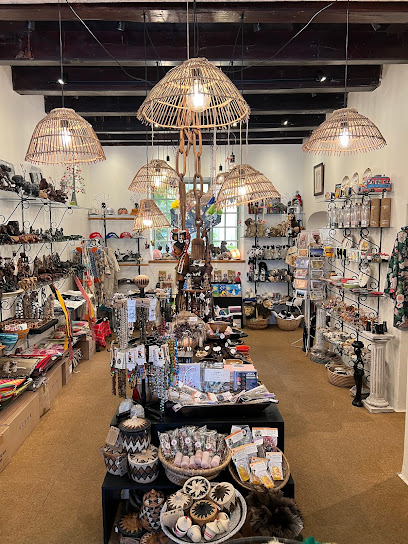
Anemone
Discover unique, beautiful clothing at Anemone in Simon's Town, where local craftsmanship meets vibrant South African fashion.
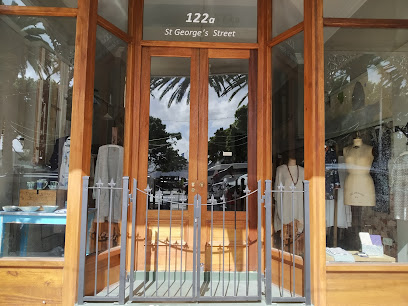
The Local Store
Explore The Local Store in Kommetjie for unique gifts, gourmet groceries, and a taste of local culture amidst stunning coastal scenery.
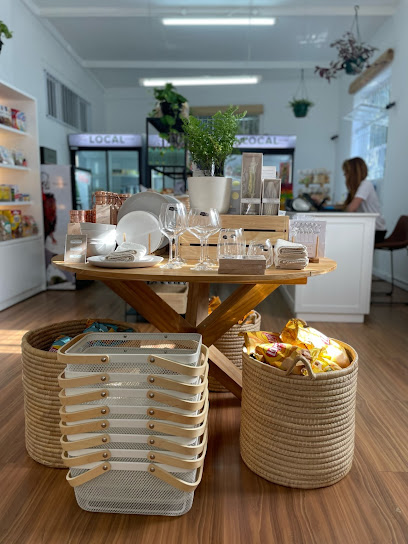
Essential bars & hidden hideouts
Foresters Arms
Experience the vibrant atmosphere and delicious flavors at Foresters Arms, a top restaurant and pub in Newlands, Cape Town.
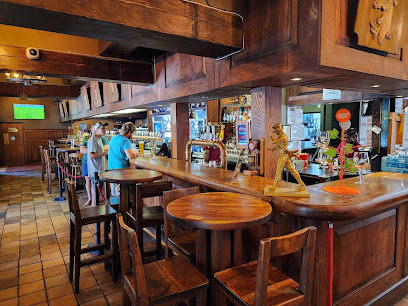
Yours Truly
Experience the vibrant nightlife of Cape Town at Yours Truly, the perfect bar for cocktails and craft beers in a lively atmosphere.
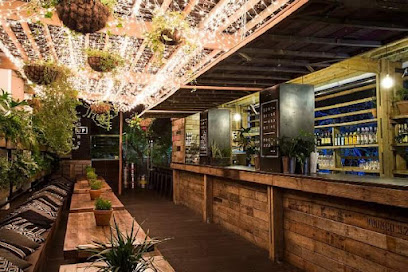
The Fireman's Arms
Discover the vibrant atmosphere of The Fireman's Arms, a historic bar and restaurant in Cape Town's De Waterkant, perfect for food and drink enthusiasts.
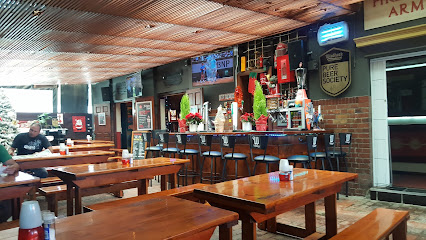
The House of Machines
Experience the lively atmosphere at The House of Machines, Cape Town's premier destination for cocktails, coffee, and live music.
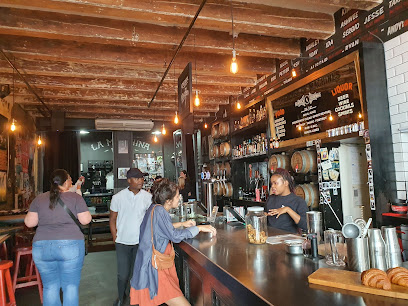
Cause Effect Cocktail Kitchen
Discover the vibrant tastes of Cause Effect Cocktail Kitchen, where innovative mixology meets delectable dining at Cape Town's Waterfront.
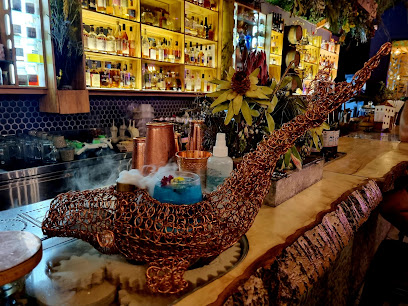
Bob's Bar and Bistro
Discover the lively ambiance and diverse flavors at Bob's Bar and Bistro, the go-to spot for nightlife in Cape Town City Centre.
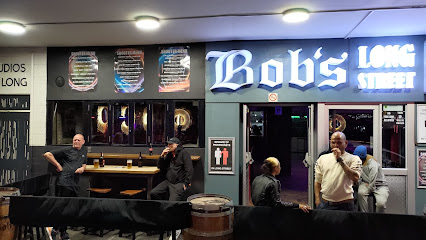
Harringtons Cocktail Lounge
Experience the vibrant nightlife of Cape Town at Harringtons Cocktail Lounge - a cocktail bar offering innovative drinks and a lively atmosphere.
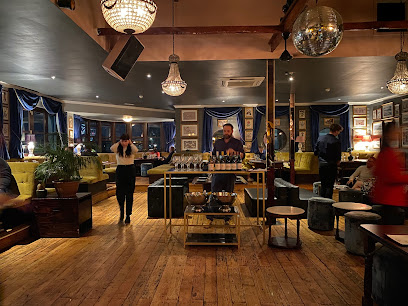
The Power & The Glory
Experience the vibrant atmosphere of The Power & The Glory, a unique bar and café in Cape Town, where locals and tourists come together to enjoy great drinks and food.
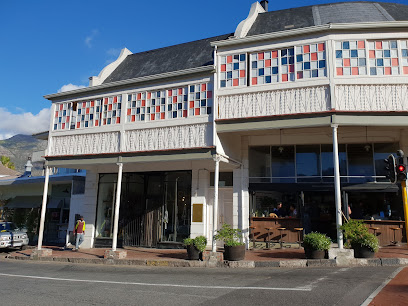
14Stories Rooftop Bar
Discover breathtaking views and vibrant nightlife at 14Stories Rooftop Bar, the ultimate destination for tourists in Cape Town.
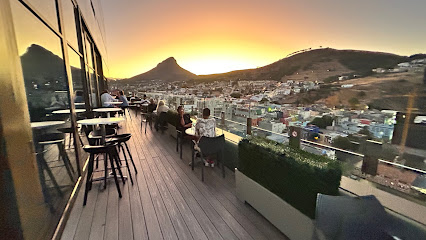
Harald's Rooftop Bar & Terrace
Experience stunning views and vibrant cocktails at Harald's Rooftop Bar & Terrace, the perfect spot for relaxation in Cape Town.
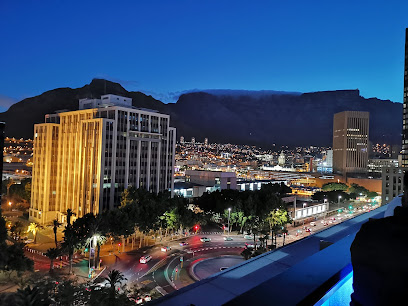
fable
Discover Fable Cocktail Bar in Cape Town: a blend of unique cocktails and vibrant ambiance for the perfect night out.
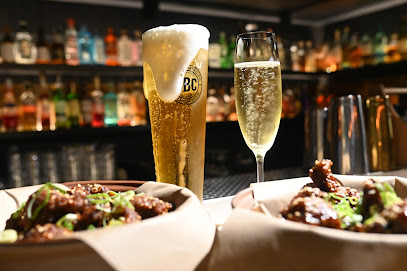
The Dark Horse
Discover the lively spirit of Cape Town at The Dark Horse, a bar that offers a unique blend of craft drinks, delicious bites, and vibrant atmosphere.
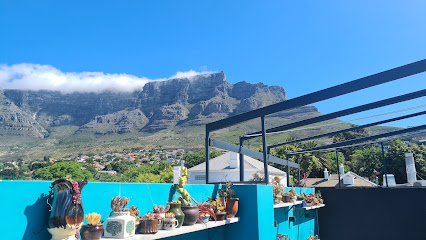
The Jagger Lounge
Discover the vibrant nightlife of Cape Town at The Jagger Lounge, where delicious food meets electrifying entertainment in a stylish setting.
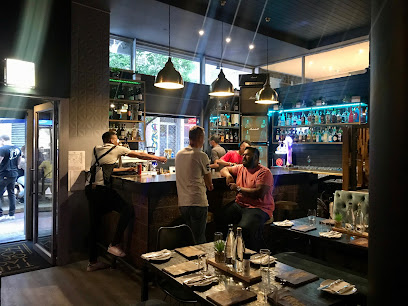
Incognito
Discover the vibrant atmosphere of Incognito, a cocktail bar in Constantia offering exquisite tapas, live music, and unforgettable experiences.
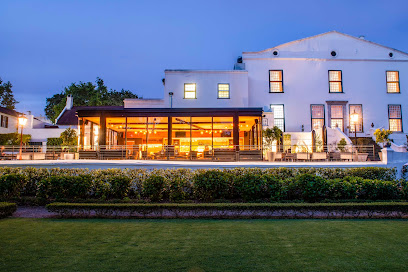
Local Phrases about Cape Peninsula
-
- HelloMolo
[moh-loh] - GoodbyeTotsiens
[toh-tseens] - YesJa
[yah] - NoNee
[nee] - Please/You're welcomeAsseblief
[ah-suh-bleef] - Thank youDankie
[dahn-kee] - Excuse me/SorryVerskoon my
[fehr-skoon may] - How are you?Hoe gaan dit?
[hoo gahn deet] - Fine. And you?Goed. En jy?
[hoo-de. en yey] - Do you speak English?Praat jy Engels?
[praht yey eng-uls] - I don't understandEk verstaan nie
[ayk fehr-stahn nee]
- HelloMolo
-
- I'd like to see the menu, pleaseEk wil die spyskaart sien, asseblief
[ayk vil dee spice-kart seen, ah-suh-bleef] - I don't eat meatEk eet nie vleis nie
[ayk ayt nee flay-s nee] - Cheers!Gesondheid!
[geh-sund-hate] - I would like to pay, pleaseEk wil asseblief betaal
[ayk vil ah-suh-bleef buh-tahl]
- I'd like to see the menu, pleaseEk wil die spyskaart sien, asseblief
-
- Help!Help!
[help] - Go away!Gaan weg!
[ghan vekh] - Call the Police!Bel die polisie!
[bell dee poh-lee-see] - Call a doctor!Bel 'n dokter!
[bell uhn duhk-tehr] - I'm lostEk is verlore
[ayk is fehr-lor-uh] - I'm illEk is siek
[ayk is seek]
- Help!Help!
-
- I'd like to buy...Ek wil koop...
[ayk vil kohp] - I'm just lookingEk kyk net
[ayk kike neht] - How much is it?Hoeveel kos dit?
[hoo-feel kohs deet] - That's too expensiveDit is te duur
[deet is teh duhr] - Can you lower the price?Kan jy die prys verlaag?
[kahn yey dee pris fuh-rahgh]
- I'd like to buy...Ek wil koop...
-
- What time is it?Hoe laat is dit?
[hoo laht is deet] - It's one o'clockDit is een uur
[deet is ayn ohr] - Half past (10)Half tien
[hahf teeyen] - MorningOggend
[oh-ghuhnt] - AfternoonMiddag
[mid-dahg] - EveningAand
[ahnt] - YesterdayGister
[ghis-tehr] - TodayVandag
[fun-dahg] - TomorrowMôre
[moh-ruh] - 1Een
[ayn] - 2Twee
[twee] - 3Drie
[dree] - 4Vier
[feer] - 5Vyf
[fayf] - 6Ses
[sehs] - 7Sewe
[seh-weh] - 8Agt
[ahgt] - 9Nege
[nee-geh] - 10Tien
[teeyen]
- What time is it?Hoe laat is dit?
-
- Where's a/the...?Waar is die...?
[vahr is dee] - What's the address?Wat is die adres?
[vaht is dee ah-drehs] - Can you show me (on the map)?Kan jy my wys (op die kaart)?
[kahn yey may vays (ohp dee kart)] - When's the next (bus)?Wanneer is die volgende (bus)?
[vahn-ehr is dee fuhl-gen-duh (buhs)] - A ticket (to ....)‘n Kaartjie (na ....)
[uhn kahrt-chee (nah)]
- Where's a/the...?Waar is die...?
History of Cape Peninsula
-
Long before European explorers set foot on the Cape Peninsula, it was home to the indigenous Khoisan people. These hunter-gatherers and pastoralists lived in harmony with the natural environment, utilizing the rich resources of the land and sea. Evidence of their presence, such as rock art and ancient tools, can still be found in the area. The Khoisan culture, known for its unique click languages and deep spiritual connection to nature, forms an integral part of the Peninsula's historical tapestry.
-
In 1488, the Portuguese explorer Bartolomeu Dias became the first European to round the southern tip of Africa, which he named the 'Cape of Storms' due to its treacherous seas. This name was later changed to the 'Cape of Good Hope' by King John II of Portugal, reflecting the optimism of finding a sea route to India. Dias' journey marked the beginning of European interest in the region, which would have lasting impacts on its history and development.
-
In 1652, Jan van Riebeeck and the Dutch East India Company established a refreshment station at the Cape of Good Hope to supply their ships en route to Asia. This marked the beginning of permanent European settlement in the region. The establishment of Cape Colony led to significant changes, including the introduction of agriculture, the construction of the Castle of Good Hope, and increased conflict with the indigenous Khoisan people over land and resources.
-
The strategic importance of the Cape Peninsula made it a contested site between European powers. In 1795, the British seized control of the Cape Colony from the Dutch to prevent it from falling into the hands of the French Revolutionary forces. Although briefly returned to the Dutch, the British permanently reoccupied the Cape in 1806. This period saw the expansion of British influence and the introduction of English as a major language in the region.
-
Simon’s Town, located on the eastern side of the Cape Peninsula, has a rich naval history. Established as a naval base by the British Royal Navy in 1814, it played a crucial role during both World Wars. The town is home to the South African Naval Museum and the historic Simon’s Town Dockyard. Visitors can explore artifacts and exhibits that highlight the naval heritage of the area, as well as the town’s charming Victorian architecture.
-
The Cape Peninsula is closely linked to the history of apartheid in South Africa. Robben Island, located just off the coast, served as a prison for political prisoners, including Nelson Mandela, who was incarcerated there for 18 of his 27 years in prison. Today, Robben Island is a UNESCO World Heritage Site and museum, offering guided tours that provide insight into the struggles and resilience of those who fought against apartheid.
-
In 1998, the Cape Peninsula National Park was established, later renamed Table Mountain National Park, encompassing the iconic Table Mountain, Cape Point, and several other natural landmarks. The park protects the unique biodiversity of the Cape Floral Region, a UNESCO World Heritage Site known for its extraordinary variety of plant species. Visitors can enjoy hiking, wildlife viewing, and breathtaking scenery while learning about the conservation efforts to preserve this natural wonder.
Cape Peninsula Essentials
-
Cape Peninsula is located in the southwestern part of South Africa, within the city of Cape Town. The nearest international airport is Cape Town International Airport (CPT), which is approximately 30 kilometers from the peninsula. From the airport, you can take a taxi, shuttle service, or rent a car to reach the Cape Peninsula. There are also public buses and private transfer services available.
-
Transportation within Cape Peninsula can be managed through various means. Renting a car is highly recommended for flexibility and convenience, as it allows you to explore at your own pace. Alternatively, you can use public transport such as the MyCiTi buses, which connect major areas. Taxis and ride-sharing services like Uber are also available. For a more scenic experience, consider taking a guided tour or renting a bicycle for shorter distances.
-
The official currency in South Africa is the South African Rand (ZAR). Credit and debit cards are widely accepted in most establishments, including hotels, restaurants, and shops. However, it is advisable to carry some cash for small purchases and in case you visit rural areas where card facilities may not be available. ATMs are readily available throughout Cape Town and the Cape Peninsula.
-
While Cape Peninsula is generally safe for tourists, it is important to stay vigilant. Avoid walking alone at night in isolated areas and always keep your belongings secure. Areas such as Cape Flats and certain parts of central Cape Town have higher crime rates and should be avoided, especially after dark. Stick to well-lit, populated areas and consider using a reputable guide for exploring more remote locations.
-
In case of emergency, dial 10111 for police assistance or 10177 for medical emergencies. Cape Town has modern hospitals and clinics to address medical needs. It is advisable to have travel insurance that covers medical emergencies. For minor health issues, pharmacies are widely available and stocked with necessary medications. Keep a list of emergency contacts and your embassy's contact details handy.
-
Fashion: Do wear comfortable and weather-appropriate clothing. Cape Town has a laid-back style, but swimwear should be reserved for the beach. Religion: Do respect religious sites by dressing modestly and removing hats when entering places of worship. Public Transport: Do be courteous and offer your seat to elderly passengers when using public transport. Avoid loud conversations and eating on public transport. Greetings: Do greet people with a handshake or a friendly nod. It is customary to greet store clerks and service personnel. Eating & Drinking: Do try local cuisine and wines. Tipping is customary, usually around 10-15% in restaurants.
-
To experience Cape Peninsula like a local, visit the weekend markets such as the Neighbourgoods Market in Woodstock or the Bay Harbour Market in Hout Bay. Try local dishes like 'bobotie' and 'bunny chow'. Engage with locals, as they are generally friendly and eager to share recommendations. Don’t miss the opportunity to hike Table Mountain or visit the penguins at Boulders Beach. For a unique experience, take a scenic drive along Chapman's Peak Drive.
Trending Landmarks in Cape Peninsula
-
V&A Waterfront
-
Boulders Beach
-
The Cape Wheel
-
Cape Point Nature Reserve
-
Bay Harbour Market
-
World of Birds Wildlife Sanctuary & Monkey Park
-
The Nelson Mandela Gateway To Robben Island
-
Rhodes Memorial
-
Cape Point
-
Flying Dutchman Funicular
-
Iziko Slave Lodge
-
Rondevlei Nature Reserve
-
Cape Town Diamond Museum
-
Gugulethu 7 Memorial
-
Foxy Beach
Nearby Cities to Cape Peninsula
-
Things To Do in Keetmanshoop
-
Things To Do in Kimberley
-
Things To Do in East London
-
Things To Do in Lüderitz
-
Things To Do in Bloemfontein
-
Things To Do in Mohale's Hoek
-
Things To Do in Mafeteng
-
Things To Do in Quthing
-
Things To Do in Maseru
-
Things To Do in Teyateyaneng
-
Things To Do in Mariental
-
Things To Do in Leribe
-
Things To Do in Thaba-Tseka
-
Things To Do in Butha-Buthe
-
Things To Do in Mokhotlong













